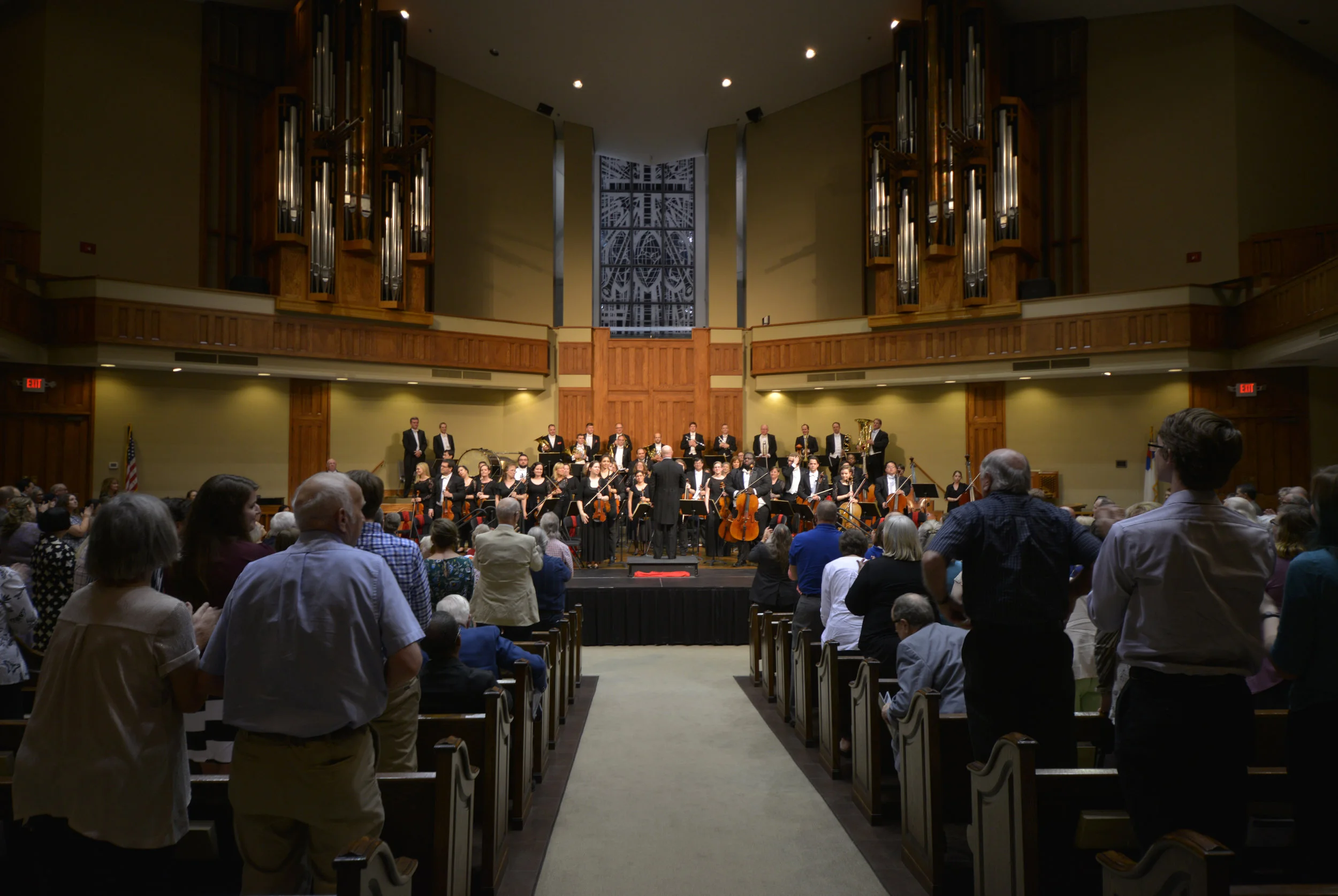Good Vibrations
This piece was originally published in the Spring 2016 issue of Our Jackson Home: The Magazine.
The third Hard Rock Cafe in the world was opened in Jackson, Tennessee, on January 29, 1983, in the Old Hickory Mall, and although it was short-lived, people still get excited about the idea that for a brief time in history we were listed among cities like London, Los Angeles, and Tokyo. The first Asian location was actually opened the same year as our own, officially making HRC a worldwide enterprise. The Jackson Hard Rock has almost taken on a legendary status partly because it was here so briefly and partly because Jackson has little in common with the large cities normally associated with the franchise.
Hard Rock co-founder Isaac B. Tigrett belongs high up on any list of the most interesting people from Jackson. While he is best known locally for the restaurant he founded, less mention is heard about the Jackson native himself or his values-based business philosophy. Tigrett attributes his many successes to discovering a set of principles early on that helped guide his decision-making process.
Tigrett is intriguing because he defies convention in almost every way. He came from one of Jackson’s oldest and most prominent families, but instead of embracing social status, he railed against class consciousness. He methodically built up one of the most original and successful franchises in the world and then sold his stake in that business to focus on opening a free hospital in South India. He married The Beatles drummer Ringo Starr’s ex-wife and lovingly referred to her as his “greatest piece of rock memorabilia.” He even played a town biker in a movie called Nothing But Trouble that starred Chevy Chase, John Candy, and Dan Akroyd. And although he moved from Jackson when he was in his teens, he has never forgotten his Jackson roots. He was born and raised here, and in his talks he mentions his hometown quite frequently.
One of the London Hard Rock’s earliest managers, Eric Crisman, described Tigrett as “a revolutionary hippie activist with long hair.” Tigrett is not ashamed of this assessment at all. In fact, he includes the Crisman quote in his personal bio. But Tigrett’s good business sense was obvious early on, and Hard Rock Cafe wasn’t Tigrett’s first business venture. Three years before the first Hard Rock opened in London, he opened Century Carriage Company and imported used Rolls Royces and Bentleys from England, selling the automobiles stateside at a high profit. The success of that business financed the “classless” restaurant he envisioned, the now world-famous Hard Rock Cafe. Tigrett later told The New York Times that he “never expected [the] place to last six months.” It’s now entering its forty-fifth year, but Tigrett sold his stake in the business years ago.
Tigrett wanted to create a place that was welcoming of all—an inclusive environment where social status didn’t matter. Its motto, “Love all, serve all,” embodied the spirit of what he wanted to do. The New York Times characterized the restaurant’s founding as being rooted in “Mr. Tigrett’s desire to rebel against class consciousness.” Tigrett says he wanted to create a place where “bankers and bakers could commune,” and in the early seventies there was no better way to do that than through music. He saw, like many others of that era, the potential music had to cut through social barriers and unite people. In 1971 the music scene was dominated by English bands such as Led Zeppelin, The Who, Jethro Tull, and The Rolling Stones, as well as solo artists like Eric Clapton, Paul McCartney, John Lennon, and George Harrision. And some of those world-famous artists quickly became regulars at the London Hard Rock. Two of those patrons, Eric Clapton and Pete Townshend of The Who, would later inspire the idea of adorning the walls of each location with rock memorabilia.
Tigrett admits that he didn’t know much about running restaurants when he opened the first Hard Rock at age twenty-two. He was inexperienced but discovered certain principles that helped guide his business decisions. He refers to those concepts as the “five basic human values,” and in an interview with Gene Massay he explained that his business philosophy has always been centered around the principles of peace, love, righteousness, truth, and nonviolence. The questions he asked himself to evaluate his businesses are interesting because they aren’t focused on profit-motives or bottom lines at all; they’re focused on positive values that would contribute to greater harmony among people working together in any capacity or for any purpose.
“We are all here basically on a journey to discover our true identity and nothing more.”
He always asked the following questions about his business operations:
On Peace: “Are you running a peaceful place? Is the environment you’ve created one of peace?”
On Love: “Is this a loving place? Is this a place where there is a positive vibration ofmutual respect and care for each other and everyone has a common voice?”
On Righteousness: “Is everybody doing the right thing, or are people picking up some of these negative values—lying, cheating, and making decisions according to what’s best for them or what’s best for the collective?”
On Truth: “Are people telling the truth? Is the whole place based on honesty? Or is it based on a delusion of various mores which actually have no depth whatsoever?”
On Nonviolence: Is it nonviolent? “This doesn’t just mean physical nonviolence; it means mental nonviolence. The most powerful thing you can do on the planet is not physical; it’s mental. You can bring bad vibrations to someone . . . simply by sending hate to them, or lust or anger. So watch your thoughts. It’s the most powerful thing you can do.”
It’s easy to see how these principles in action would create a pleasant work atmosphere. In an environment where everyone shared those common values, there would be no discord, no dishonesty, and no gossip. While it might be a stretch to imagine such a utopian place existing in the real world, Tigrett believed in striving to make that vision a reality. In his interview with Massay, Tigrett also said, “We are all here basically on a journey to discover our true identity and nothing more.” And it’s certainly true that our values do tell us a great deal about who we are. By making sure our actions align with our values, we develop integrity—an important element of not just running an ethical business but of living a good life.
The New York Times has called him a “reverse snob.” He’s referred to himself as “that weird cat from Jackson, Tennessee.” And in Jackson we mainly know him as the guy who founded the Hard Rock Cafe. But Isaac B. Tigrett’s story is not your typical tale of a successful businessman striking it rich or of how money changes a man. He was born into an affluent family and had many entrepreneurs influencing his development. Making money was not difficult for him, and his story is not of a by-the-bootstraps variety. Instead, his story is about discovering a set of guiding values and using those ideals in a practical way that combined business and compassion to create a recipe for real success. He is currently working on a visionary project that involves opening a teaching and healing center in the rainforests of South India that’s unlike anything the world has ever seen.
Tigrett serves as a great example of how thinking a little differently and operating on values-based principles can lead to unimaginable success, and how someone born and raised in Jackson, Tennessee, can have a profound impact on the rest of the world. We may never get another Hard Rock in Jackson unless the city expands significantly, but we can take note of the values Tigrett discovered that helped make each of his business ventures successful and try to apply them to our own endeavors.
Angela Woods is passionate about creativity. She especially enjoys using the written word to help others and to effect positive change. She graduated from Jackson State Community College in 2006 and was awarded a PTK scholarship to attend Lambuth University. She was also a recipient of the Tennessee Historical Commission Merit Award. When she's not busy writing, you can usually find her learning something new, gardening, creating mandalas, playing guitar, or riding through Jackson on her bicycle.
Photography provided by Isaac Tigrett.





































